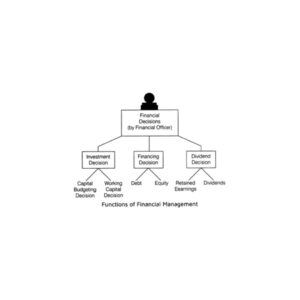
 Financial management decision
Financial management decision
Financial management decision: Tax planning with reference to involves strategically considering and incorporating tax implications into the broader financial strategies of a company or individual. This approach aims to optimize financial management practices while minimizing tax liabilities.
Here are some key considerations for tax planning with respect to financial management decisions:
Budgeting and Forecasting:
Tax planning involves factoring in tax obligations when creating budgets and financial forecasts. It ensures that the projected income and expenses align with tax obligations, preventing any surprises and enabling better financial planning.
Expense Management:
Tax planning focuses on identifying tax-deductible expenses and incorporating them into financial management decisions. By maximizing deductible expenses, businesses and individuals can minimize their taxable income and reduce their overall tax liability.
Income Optimization:
Tax planning explores strategies to optimize income and revenue recognition to minimize tax liabilities. This may involve timing income receipts or deferrals, taking advantage of tax incentives or exemptions, and utilizing tax-efficient investment vehicles.
Debt and Financing:
Tax planning considers the tax implications of different financing options and structures debt in a tax-efficient manner. It evaluates the deductibility of interest expenses, evaluates alternative financing methods, and considers the tax consequences of debt restructuring.
Capital Expenditures:
Tax planning takes into account the tax treatment of capital expenditures, such as depreciation, amortization, or immediate expensing options. It assesses the available tax incentives and credits related to capital investments and aligns financial management decisions accordingly.
Business Structure and Entity Selection:
Tax planning evaluates the tax implications of different business structures and entity types. It considers factors such as liability protection, ease of operations, and tax treatment to determine the most advantageous structure for financial management and tax efficiency.
Compliance and Reporting:
Tax planning ensures compliance with tax laws and regulations by incorporating proper record-keeping and reporting practices into financial management decisions. It helps minimize the risk of penalties or audits by maintaining accurate and complete financial records.
By integrating tax planning with financial management decisions, businesses and individuals can achieve optimal financial outcomes while remaining tax compliant. It is recommended to work with tax professionals or financial advisors who specialize in tax planning to develop tailored strategies that align with specific financial goals and circumstances.
FAQs
1.Why is tax planning important for financial management?
Answer: It helps individuals and businesses save money, enhance cash flow, and make informed financial decisions by understanding tax implications.
2. How can tax planning influence investment decisions?
Answer: Tax-efficient investments can lead to higher after-tax returns, influencing where and how much to invest.
3. What role does tax planning play in budgeting?
Answer: Effective tax planning ensures that enough funds are set aside for tax payments, impacting overall budget allocation.
4. How can businesses reduce their tax liability?
Answer: Businesses can reduce tax liability through deductions, credits, and by taking advantage of tax incentives for specific activities or investments.
5. What is the impact of tax brackets on income planning?
Answer: Different tax brackets affect how much tax is owed on income, so planning income timing can help minimize taxes by avoiding higher brackets.
6. How does tax planning affect cash flow management?
Answer: By forecasting tax liabilities accurately, businesses can manage cash flow better and avoid unexpected shortfalls when taxes are due.
7. What is the significance of tax-loss harvesting?
Answer: Tax-loss harvesting involves selling losing investments to offset gains, which can reduce overall tax liability.
8. How can retirement accounts assist in tax planning?
Answer: Contributions to retirement accounts can provide tax deductions now and tax-free withdrawals later, helping in effective long-term tax planning.
9. What should be considered when planning for future tax changes?
Answer: Anticipating changes in tax laws, rates, or regulations is crucial, as it can affect future financial decisions and tax strategies.
